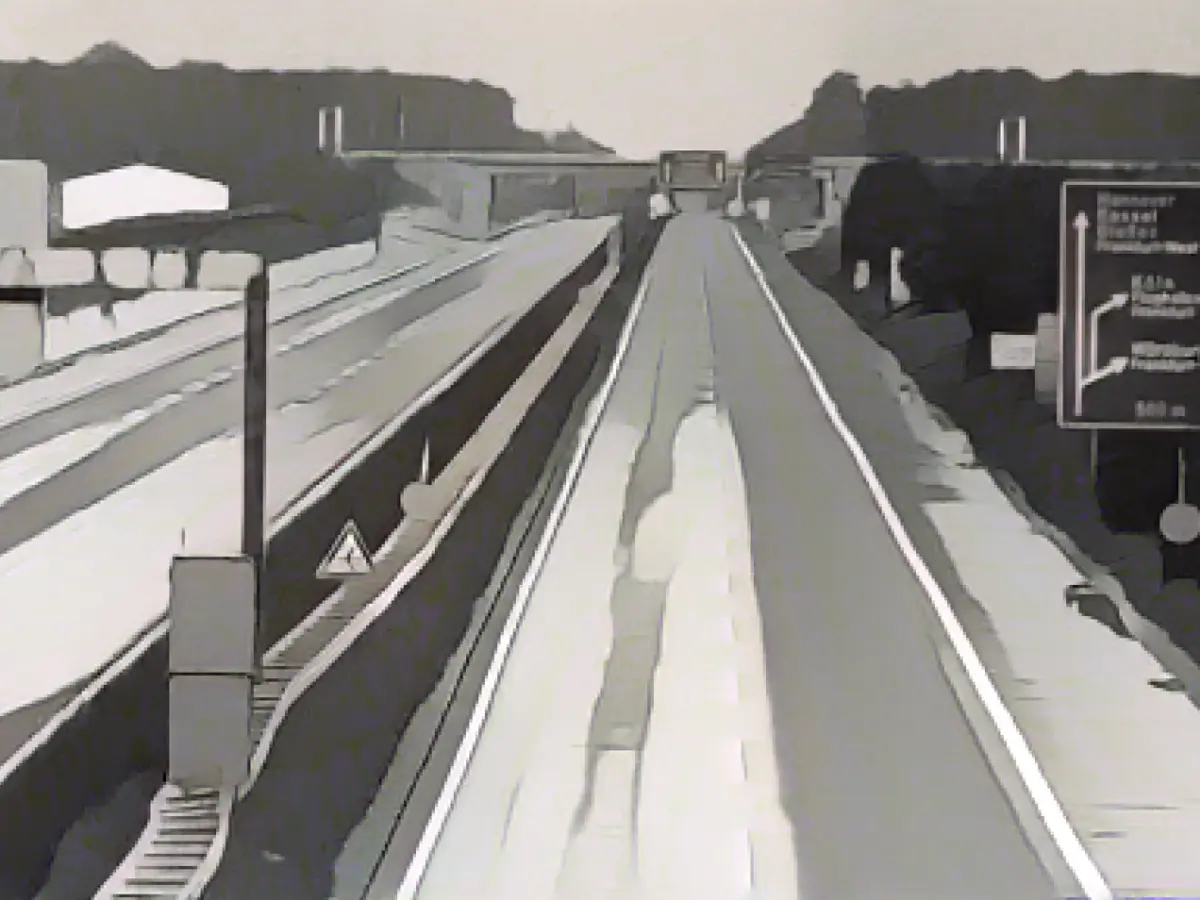Empty highways - Arte documentary about oil shock in Germany
The Western world is heading into a deep economic crisis, but on November 25, 1973, the West German streets are in a festive mood. The German government has declared the first car-free Sunday. A man walks his German shepherd in the middle of the highway. People dance in the cold rain on Berlin boulevards. Some are riding bicycles, others are riding horses. Elias von Salomon has found amazing archive material for his film "The Oil Shock of 1973 - Car-Free Sundays". The documentary will be shown on Arte on Thursday at 8.15 pm.
On four Sundays from November 25, driving was taboo in West Germany. Photos of the deserted highways can be found in many German history books today, while other images show hiking groups or camping tents on the expansive concrete. "This is something that is enormously memorable as an experience. As a result, it has become the iconic image in the Federal Republic," says historian Prof. Rüdiger Graf.
The shared experience that life without a car was possible was almost a kind of awakening for many later environmental and traffic activists. "The fact that you could suddenly go for a walk or ride a bike on roads that had only ever been used by motor vehicles was an attraction. It was also perceived as such," remembers Uwe Haack, now with Verkehrsclub Deutschland. Gerhard Stolz from the Pro Bahn association adds: "What I remember from that time - it was in November, those car-free Sundays - is that you suddenly noticed a completely different smell in the city. It wasn't necessarily the smell of the forest." It was the smell of the coal stoves.
This event, nostalgically remembered by entire generations, had a bloody background: in the fall of 1973, Egyptian and Syrian troops had invaded Israel. The USA supported its ally Israel in the Yom Kippur War. The Arab oil-exporting states saw this as an affront and imposed an oil embargo on America. At the same time, the major oil exporters from the Middle East announced that they would reduce production. The result: the oil shock. The governments of the West were forced to act.
In retrospect, the 1973 oil crisis and its consequences were a profound turning point. The post-war economic boom came to an abrupt end. The environmental movement became increasingly popular. A new awareness of resource consumption, consumption and the resulting environmental damage emerged. These are all developments that continue to have an impact today.
Read also:
- Sky documentary: "23 - The mysterious death of a hacker"
- TV tips on Tuesday
- The Christmas streaming offer at Sky
- TV tips on Saturday
- Despite the impending economic crisis, the TV outlook for Thursday includes a documentary titled "The Oil Shock of 1973 - Car-Free Sundays," airing at 8.15 pm on Arte.
- The Western world's response to the 1973 oil crisis, especially in Germany, was marked by an economic crisis and unexpected celebrations, as seen in the empty highways of Berlin.
- Consequently, on November 25, 1973, the Federal Government declared a car-free Sunday, leading to an unusual scene of horses trotting on the highway and people dancing in the rain.
- Uwe Haack, now with Verkehrsclub Deutschland, reminisces about the unprecedented freedom experienced on car-free Sundays, with people bicycling and hiking in a festive atmosphere.
- The Arab oil embargo and reduced production in the Middle East caused the oil shock, leading the West German government to implement car-free Sundays and promote environmental awareness.
- The car-free Sundays also provided a breather from the typical smells of motor vehicles, and instead, people were greeted by the familiar scent of coal stoves throughout the German cities.
- In a period of nostalgia, the horse-drawn carriages and folk festival atmosphere on German highways in 1973 emerge as a memorable and iconic experience, igniting a new awareness of resource consumption and environmental impact.
Source: www.stern.de








